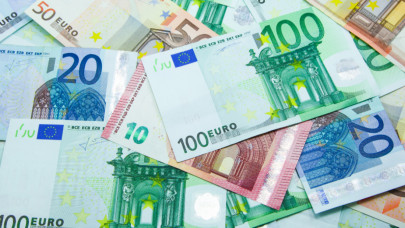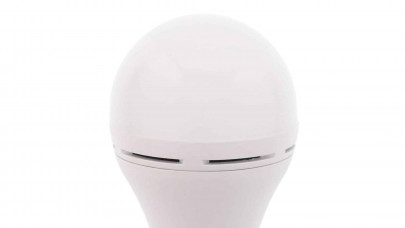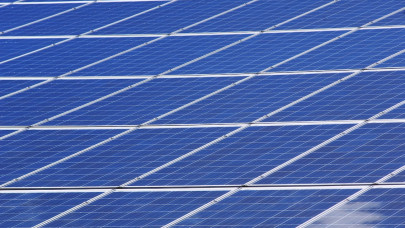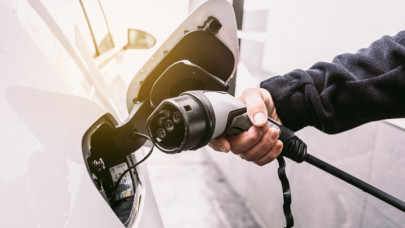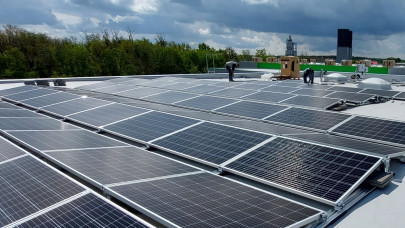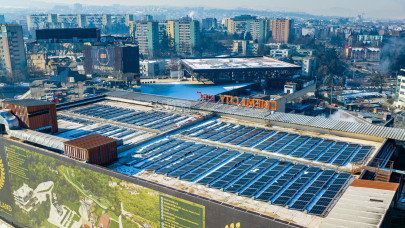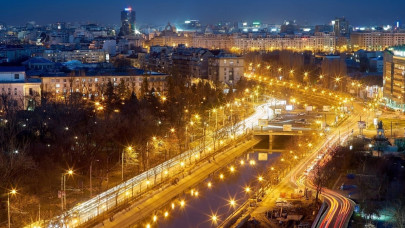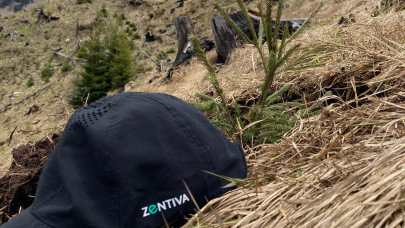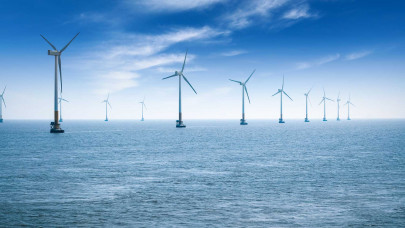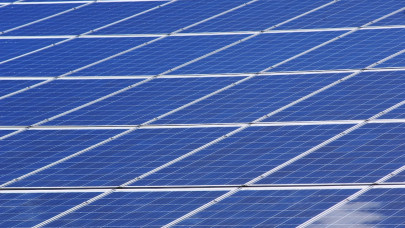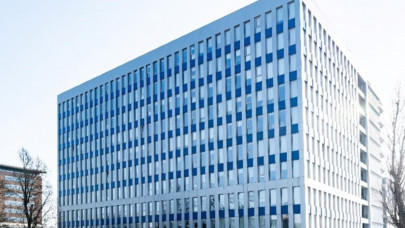Business |
29 March, 2023 at 12:34 PM
Romanian businesses perceive climate change and access to finance as threats to their businesses, an EIB investment survey shows. 69% of the surveyed Romanian companies say that climate change has a negative impact. Also, a third of Romanian companies have invested in improving energy efficiency in the last year, close to the EU average of 40%.
Finance |
28 March, 2023 at 6:00 PM
More than €1.1 billion in finance to be mobilised in sustainable projects, supported by €150 million in InvestEU guarantees. Under the InvestEU programme, the European Bank for Reconstruction and Development (EBRD) and European Commission work together to help various EU countries in reaching their full green potential. New investments to boost green and sustainable projects in the municipal, transport, and energy sectors. Funds to benefit Bulgaria, Croatia, Czechia, Estonia, Greece, Hungary, Latvia, Lithuania, Poland, Romania, Slovakia, and Slovenia
Industry |
28 March, 2023 at 9:32 AM
E.ON Energie Romania and Oncos Transilvania have completed a smart lighting project of over €500,000. The classic lighting system in 45 company halls in Cluj and Sălaj counties was replaced. Energy consumption will be reduced by over 70%, and the carbon footprint will decrease by over 230 tons/year.
Energy |
28 March, 2023 at 9:30 AM
The Iasi airport will have a new passenger terminal at the end of 2023, its construction having started in the fall of 2022. It will have solar panels installed, in order to save on energy consumption. The works at the new terminal are carried out by Strabag.
Mobility |
27 March, 2023 at 6:48 PM
ProCredit Bank launches the ProGreen Auto Credit for individuals who want to purchase a new fully electric or plug-in hybrid car. The bank has entered into a partnership with EVconnect, one of the main providers of charging solutions for electric cars; customers benefit from free electric charges for the first 1,000 kilometers traveled.
Energy |
27 March, 2023 at 8:28 AM
Electrica bought the company Sunwind Energy, which develops the photovoltaic project "Satu Mare 2", with an installed capacity of 27 MW. The project is located near Botiz commune, Satu Mare county. Also, on February 6, 2023, Electrica announced the completion of the acquisition of the company Green Energy Consultancy & Investments, which develops the "Vulturu" photovoltaic project.
Business |
24 March, 2023 at 11:51 AM
The paper producer Pehart is to invest €8 million in projects to reduce consumption, implicitly the carbon footprint. The company uses only certified cellulose in production and most of the raw material comes from Sweden.
Energy |
24 March, 2023 at 8:27 AM
The Oltenia Energy Complex will receive a state aid of RON449 million (€89.8 million) for the year 2023, from the state budget, to finance expenses with greenhouse gas emission certificates. Until now, CE Oltenia has received state aid in the form of a grant of €776.4 million, also for the purchase of greenhouse gas emission certificates.
Energy |
23 March, 2023 at 3:06 PM
Iulius Group installed photovoltaic panels on all the properties in its portfolio and will produce 5,500 MWh annually across the group. The total investment adds up to more than €3.5 million.
Energy |
23 March, 2023 at 11:26 AM
The European Commission approves a scheme of Romania worth €103 million, within the Recovery and Resilience Mechanism, to support the construction of electricity storage facilities. The purpose of this measure is to support investments in electricity storage facilities, thus contributing to the EU's strategic objectives related to the green transition.
Industry |
23 March, 2023 at 8:56 AM
BAT announces results in reaching its targets related to the strategic management of the water used in its production process. In 2022, BAT recycled 22.6% of the water volume used globally. BAT goals by 2025 include Alliance for Water Stewardship (AWS) certification of all its operation sites, 30% of water recycled, and a 35% reduction in water withdrawn by 2025 vs the 2017 baseline.
Energy |
23 March, 2023 at 8:55 AM
OMV Petrom aims to reduce the carbon emissions from its own operations by 30% by 2030, compared to 2019 and the company's ambition for 2050 is to reach carbon neutrality from its own operations, says Christina Verchere, CEO of OMV Petrom.
Energy |
22 March, 2023 at 5:39 PM
The capital of Bucharest will pay lower bills for the electricity consumed for street lighting, says Mayor Nicusor Dan. The City Hall announces that it is investing €5 million to modernize the public lighting system in Bucharest by implementing the remote management system and using devices with LED technology.
Industry |
22 March, 2023 at 11:48 AM
Drugmaker Zentiva announces its commitment to plant 1 million trees by 2030. The company has reduced its CO2 emissions by 10% in 2022, following a 16% reduction in 2021.
Energy |
22 March, 2023 at 9:00 AM
Hidroelectrica signed a joint venture agreement with Masdar from the United Arab Emirates, for the construction of offshore wind farms and floating solar farms in Romania. Hidroelectrica is the largest producer of green energy in Romania, with a portfolio of 187 hydropower plants, with a hydropower capacity of 6.3 GW, plus the Crucea wind farm, with an installed capacity of 108 MW.
Energy |
21 March, 2023 at 6:07 PM
DS Smith plans to build a photovoltaic park at the Zărneşti paper factory. The park would be ready in 2024, it would require an investment of €16 million and would generate approximately 19 MWh per year.
Real estate |
21 March, 2023 at 2:17 PM
The tenants of IRIDE Park collected 10 tons of recycled paper and planted 30 trees within the park, as part of a campaign organized by CPI Romania. The company mentions that the ESG principles govern its entire activity, and this campaign is on the list of social responsibility projects of the company.
Real estate |
21 March, 2023 at 8:45 AM
Green building certifications have become a must for landlords seeking competitive differentiators in today's challenging real estate market. Retail is the “greenest” sector, followed by industrial & logistics, and office, according to a Colliers report. In the coming years, landlords who fail to align with stakeholders' sustainability - demands will be affected, say the consultants.
Real estate |
20 March, 2023 at 2:32 PM
The Dageco Expoziției Estate office building has obtained funding for the installation of 260 photovoltaic panels on the roof. The investment amounts to RON 500,000 (€100.000), without VAT, and the financing is provided by the Electric-Up program.
Energy |
20 March, 2023 at 11:46 AM
The distribution companies of the E.ON group set up 13,000 km of green corridors along the high-voltage overhead lines from the Black Sea to Sweden. In Romania, Delgaz Grid will develop approximately 1,200 ha along the route of 370 km of high-voltage power lines. Green corridors support healthy, sustainable ecosystems and biodiversity.


